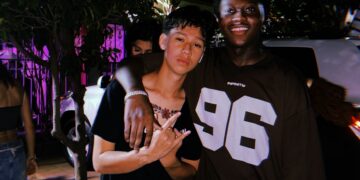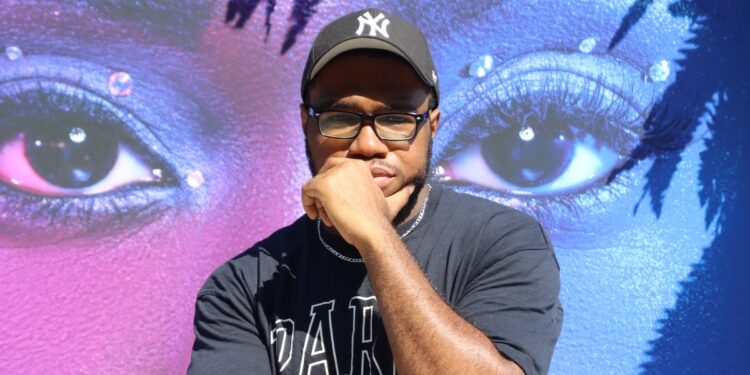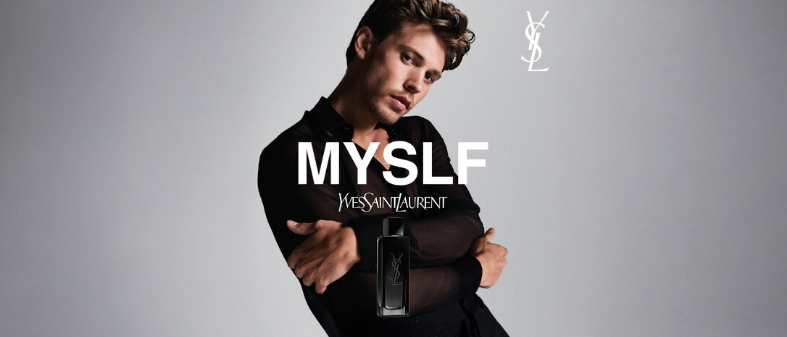For Nimbus Mar~kel, hip hop wasn’t a career choice. It was survival. Growing up in a household where Fred Hammond, Michael Jackson, and Alicia Keys played in rotation, music surrounded him early. But it was in middle school, when bullying became a regular part of his day, that rap became something more personal. He found that rhyming gave him a voice, and surprisingly, it gave him something else too: respect. The same people who had tormented him would stop just to hear him spit bars. That’s when he realized music could be both armor and therapy.
These days, Mar~kel’s approach to his craft is rooted in that same authenticity. He’s hesitant to label his sound. He’s used “alternative hip hop” before but admits it doesn’t quite fit. What’s clear is that he’s not interested in chasing what’s hot. His music pulls from the past while staying grounded in the present, blending influences from Q-Tip, Eminem, the Odd Future collective, and Mac Miller. There’s reverence in how he talks about these artists, and it comes through in his work.
Over the past eight years, he’s built a catalog that reflects that commitment. From 2017’s Babyl8n through 99Ctdreamz (2019), Illmind (2021), and this past year’s COMEBACK KID, Mar~kel has stayed consistent in his output. His most recent release, the six-track Winter Arc EP, dropped in March 2025. But it’s his upcoming project, Euthanasia, that he considers his most ambitious work yet.
Euthanasia pays some direct homage to Tupac while tackling two topics that don’t often share space: modern relationships and the state of hip hop itself. Mar~kel describes it as a collision between Nas’s “Hip Hop Is Dead” and Common’s “I Used to Love H.E.R.” Ambitious territory for any artist.

The album is expected to drop before the end of the year, accompanied by behind-the-scenes footage and music videos. More than anything, it’s a confessional. He’s not hiding his contradictions or pretending he’s got it all figured out. Instead, he’s using the project to spotlight his own hypocrisy and his desire to grow, both as a person and as part of hip hop’s ongoing evolution.

Mar~kel’s mission is simple. “I seek to pour back into the culture that cultivated me,” he says. But he’s not shy about calling out what he sees as the opposite. “People often play with this thing called music and don’t do it for the love of the craft,” he explains. He acknowledges those artists “have their place,” but draws a hard line when it comes to respect. “It doesn’t mean I gotta like it or respect it and you can see through it,” he says. “You can [tell] who’s truly authentic and who’s here not knowing whether their coming or going.” That refusal to play nice with inauthenticity is what sets him apart. Hip hop was there for him when he needed it, and he’s determined to give that back.
Follow Nimbus Mar~kel on Instagram and YouTube, or stream his music on Apple Music and Spotify.




































